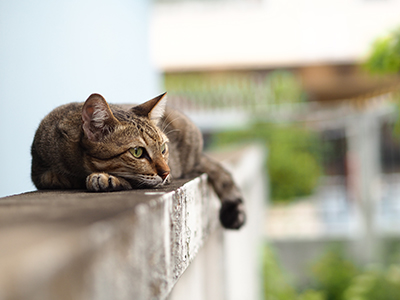

Millions of pets get lost every year, and not all of them are reunited with their families. Approximately 6 to 8 million animals end up in shelters every year, and many of these are lost family pets. A microchip can greatly increase an animal’s chances of being identified at a shelter and returned home. Only roughly 5% of dogs and less than 1% of cats have a microchip.
The Journal of the American Veterinary Medical Association published a study revealing that compared to the 22% of lost dogs without a microchip that were reunited with their families, the return rate for microchipped dogs was 238% higher, at over 52%. Likewise, only about 2% of cats without a microchip returned to their owners, while over 38% of those microchipped were returned to their families.
For an example of just how helpful a microchip can be, check out this story about Romeo the cat, who was found 120 miles from home!
